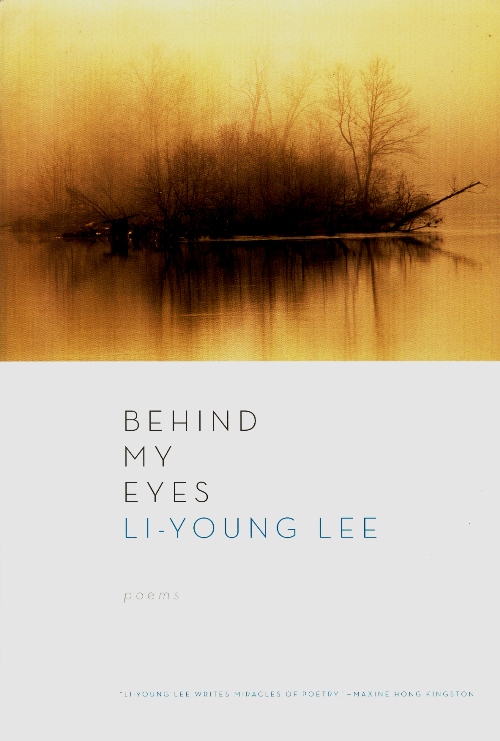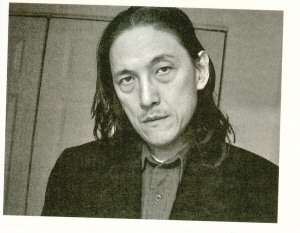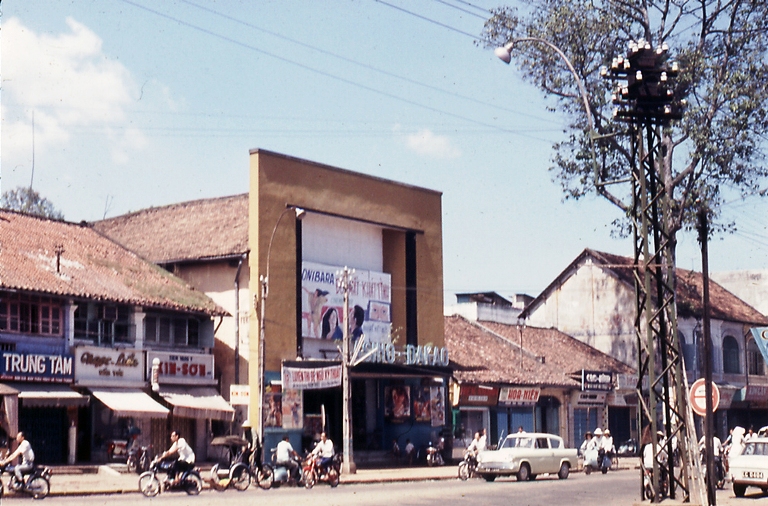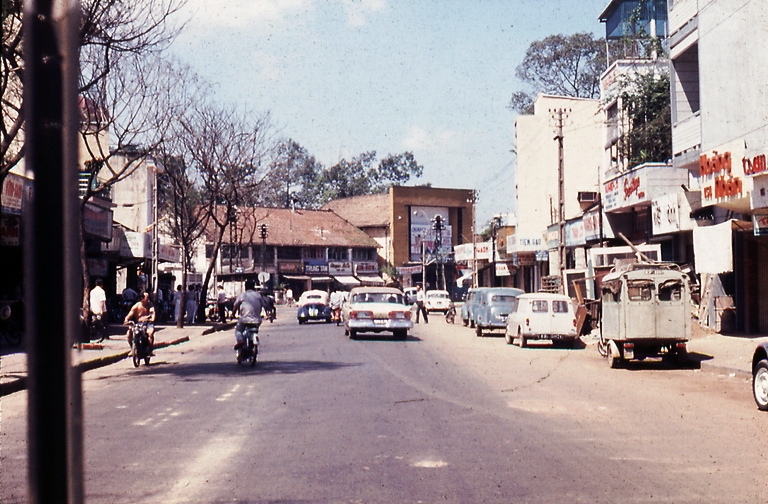THAT LITTLE SOMETHING
for
Li-Young Lee
The
likelihood of ever finding it is small.
It's like being accosted by a woman
And asked to help her look for a pearl
She lost right here in the street.
She could be making it all
up,
Even her tears, you say to yourself,
As you search under your feet,
Thinking, Not in a million years ...
It's one of those summer
afternoons
When one needs a good excuse
To step out of a cool shade.
In the meantime, what ever became of her?
And why, years later, do
you still,
Off and on, cast your eyes to the ground
As you hurry to some appointment
Where you are now certain to arrive late?
Charles Simic
Dịch theo kiểu classic :
Một chút gì
Sẽ chẳng bao giờ biết được
đâu
Chút gì rất nhẹ ... tựa hôm nào
Nàng đến kề bên, nhờ tìm giúp
Giữa đường rơi một hạt minh châu
Có thể rằng Nàng bịa đấy
thôi
E rằng nước mắt cũng vờ rơi
Mắt dò dưới chân, lòng thầm nghĩ
Tìm suốt triệu năm cũng chỉ hoài
Hôm ấy, một chiều của mùa
hè
Cuồng chân trong bóng mát im che
Viện trăm ngàn cớ mà ra khỏi ...
Còn Nàng , vì cớ gì vậy kìa ?
Thế thôi mà sao sau bao năm
Thi thoảng mắt lại dò mặt đường
Những lần vội đến nơi hò hẹn
Dù biết mười mươi, trễ, chuyện thường (1)
K
Tks. NQT
GCC biết đến cái tên
Li-Young Lee là qua bài thơ trên.
Li-Young Lee (a)
WHEN LI- YOUNG LEE visited
Pearl London's class in March 1995, he was thirty-seven years old and
had written two books of poems. His visit coincided with the release of
a third book, his prose-poem memoir, The Winged Seed: A
Remembrance. In lush language, the book unfolds Lee's
extraordinary biography: his father was for
a time Mao's personal physician, but on the establishment of the
People's Republic his parents fled to Indonesia, where Lee was born in
Jakarta in 1957. The following year, with Indonesia becoming
increasingly anti-Chinese under President Sukarno, Lee's father was
arrested and imprisoned for nineteen months.
After his release the family traveled in exile for
five years, moving from Hong Kong to Macao to Japan before arriving in
the United States. Lee's father then attended seminary in Pittsburgh
and settled the family in the small town of Vandergrift, Pennsylvania,
where he became minister of a Presbyterian church.
The themes of memory, father, language, God, selflessness, and humility
that animate Lee's memoir play out as well in his first book, Rose
(1986) and even more deeply in The City in Which I Love You
(1991), honored as best second volume of poems by the Academy of
American Poets. In London's copy of this second volume, one line in
"The Cleaving" is marked with especially urgent asterisks and
underscoring: "What is it in me would / devour the world to utter it?"
In their conversation London asked Lee about that line, and Lee's
response illuminates his impulse toward the visionary: “As I was
writing the poem," he answers, "I wanted to write from a place of
unknowing, not from knowledge .... My wish was
that the poem would move toward a kind of ecstatic utterance."
Lee, who studied biochemistry before shifting to poetry in his senior
year at the University of Pittsburgh, now lives in Chicago with his
wife and two children. Over the years he has worked in warehouses and
as a karate teacher, and he has taught poetry at Stanford University
and the University of Iowa. Since his visit to London's class he has
written two additional volumes of poetry, Book of My Nights (200I), which won the William
Carlos Williams Award, and Behind My Eyes (2008).
*
LEE: I feel a poetic
truth is closer than any truth that we can approach. The closer
something is to poetry, the closer it is to reality. Let's just
take the lyric poem as an example-the manifold quality of a lyric poem,
the instantaneousness of a lyric poem, the feeling that many
consciousnesses are simultaneously being enacted-that is closer to
reality. The lyric moment is reality. But we don't always live in that
reality. The lyric moment is closer to the truth, to me, than a
narrative which is a fictive process.
My hope when I was writing this
book was that I could proceed by a deeper compass than narrative
fictive logic. I don't think I escape narrative in this book, but I
wish I could.
Note: Câu trả lời trên
chứa chất trong nó tham vọng viết văn của GNV:
Văn phải được chuyên chở
bằng thơ. Gấu này không thể chịu nổi văn Bắc Kít, câu cụt thun lủn,
chưa viết đã hăm he lên lớp, hăm he giải thích, hăm he chính luận.
Không tin, đọc SCN là thấy liền!
Gấu nhớ là, khi viết xong
câu văn dưới đây, trong truyện ngắn đầu tay, Những Ngày Ở Sài Gòn,
Gấu sướng mê tơi, lấy xe chạy rong suốt 1 cõi Sài Gòn, ta sẽ là nhà
văn, ta sẽ viết 1 cuốn tiểu thuyết nối liền hai thành phố….
Ui chao, sao mà rồ dại một cách tuyệt vời như thế cơ chứ!
Niên học cuối cùng của Lan
Hương ở bậc trung học bắt đầu bằng những buổi sáng sớm giá lạnh xô đẩy
trí nhớ tôi tìm lại Hà Nội, tôi thức giấc sớm, thân thể rét run, bàng
hoàng tưởng như đang run rẩy trong một buổi sáng nào đó trong Hà Nội,
tưởng như chiến tranh đã hết. (1)
Cuối cùng/bắt đầu/ xô
đẩy/… câu văn chạy tới đâu, tình yêu BHD rạt rào tới đó!
Self-Help
for Fellow
Refugees
If your name suggests a
country where bells
might have been used for entertainment
or to announce the
entrances and exits of the seasons
or the birthdays of gods and demons,
it's probably best to
dress in plain clothes
when you arrive in the United States,
and try not to talk too loud.
If you happen to have
watched armed men
beat and drag your father
out the front door of your house
and into the back of an idling truck
before your mother jerked
you from the threshold
and buried your face in her skirt folds,
try not to judge your mother too harshly.
Don't ask her what she
thought she was doing
turning a child's eyes
away from history
and toward that place all human aching starts.
And if you meet someone
in your adopted country,
and think you see in the other's face
an open sky, some promise of a new beginning,
it probably means you're standing too far.
* *
Or if you think you read
in the other, as in a book
whose first and last pages are missing,
the story of your own birthplace,
a country twice erased,
once by fire, once by forgetfulness,
it probably means you're standing too close.
In any case, try not to
let another carry
the burden of your own nostalgia or hope.
And if you're one of those
whose left side of the face doesn't match
the right, it might be a clue
looking the other way was
a habit
your predecessors found useful for survival.
Don't lament not being beautiful.
Get used to seeing while
not seeing.
Get busy remembering while forgetting.
Dying to live while not wanting to go on.
Very likely, your
ancestors decorated
their bells of every shape and size
with elaborate calendars
and diagrams of distant star systems,
but with no maps for scattered descendants.
* *
And I bet you can't say
what language
your father spoke when he shouted to your mother
from the back of the truck, "Let the boy see!"
Maybe it wasn't the
language you used at home.
Maybe it was a forbidden language.
Or maybe there was too much screaming
and weeping and the noise of guns in the streets.
It doesn't matter. What
matters is this:
The kingdom of heaven is good.
But heaven on earth is better.
Thinking is good.
But living is better.
Alone in your favorite
chair
with a book you enjoy
is fine. But spooning
is even better.
Li-Young Lee
Cẩm nang dành cho
Bạn Quí Tị Nạn
Nếu cái tên của bạn gợi ra
1 xứ sở mà tiếng chuông có thể được sử dụng để làm vui,
Hay để thông báo thời tiết giao mùa, hết thu rồi đấy nhé!
Hay sinh nhật của quỉ thần
Nếu thế, thì tốt nhất, bạn nên mặc quần áo giản dị
Khi tới Mẽo,
Và đừng la lớn, khi nói chuyện.
Nếu như bạn đã từng chứng
kiến VC đánh đập,
Và kéo ông già của bạn ra khỏi nhà
Thẩy lên đằng sau 1 chiếc xe tải đang nổ máy
Trước khi bà mẹ của bạn kéo vội bạn vô lòng,
Lấy vạt áo che mặt bạn,
Thì hãy cố tránh, đừng phán đoán bà nặng nề
Đừng hỏi bà nghĩ gì khi bà che mắt đứa con của bà,
Khỏi lịch sử,
Khỏi cái nơi tất cả những nỗi đau của con người bắt đầu.
Và nếu bạn gặp 1 người nào
đó
Ở cái xứ sở đã nhận bạn như là 1 đứa con nuôi
Và bạn nghĩ là bạn nhìn vô mặt kẻ khác đó
Mơ mòng ra
Một bầu trời mở rộng
Một hứa hẹn khởi đầu mới,
Nếu như thế,
Thì có thể là do bạn đứng hơi bị xa.
* *
Hay là, nếu bạn nghĩ bạn
đọc ra, ở nơi người khác, như trong 1 cuốn sách
Trang đầu và trang cuối bị mất
Câu chuyện về nơi bạn ra đời,
một xứ sở bị xóa sổ hai lần
một lần bởi lửa, một lần bởi quên lãng,
Và, nếu như thế, thì là do, bạn đứng gần quá.
Trong bất cứ trường hợp,
cố đừng để cho người khác
Mang gánh nặng hoài nhớ, hay hy vọng của bạn
Và nếu bạn là một trong
những người
Mắt phải chửi bố mắt trái,
Như thằng cha Gấu
Vừa lùn lại vừa lé,
Thì, biết đâu đấy
Đó là một đầu mối
Nhìn kiểu khác, cách khác,
là 1 thói quen
Mà những tên tị nạn trước bạn nhận ra, thật hữu ích
Để sống sót
Đừng khóc than, mình xấu như ma, không xinh đẹp
Hãy quen nhìn, khi không
nhìn
Hãy giả đò bận rộn tưởng nhớ, trong khi quên mẹ hết mọi chuyện
Chết vì sống, trong khi đếch muốn tiếp tục
Rất dễ xẩy ra điều này:
Tổ tiên của bạn đã trang trí những cái chuông của họ
Bằng mọi hình dáng, và kích thước
Với những tấm lịch tỉ mỉ
Những sơ đồ những hệ thống trăng sao xa vời
Nhưng họ quên không trang trí những tấm bản đồ dành cho con cháu của
họ, tản mác đâu đó, thời này thời nọ
* *
Nhưng tôi đoán, bạn không
thể nói, bằng thứ ngôn ngữ cha bạn la lên với mẹ bạn, từ phía sau chiếc
xe tải,
“Hãy để cho Thằng Cu Gấu nhìn thấy cảnh này”
[Cảnh bố Gấu bị tên học trò làm thịt]
Có thể, đó không phải là
thứ ngôn ngữ mà bạn sử dụng ở nhà.
Có thể đó là 1 thứ ngôn ngữ bị cấm đoán
Hay có thể, có nhiều tiếng than khóc quá
Và còn tiếng AK/M16 ở ngoài đường phố nữa chứ!
Chuyện nhỏ, để ý làm chó
gì!
Điều này đáng kể:
Vương quốc Thiên Đàng thì tốt
Nhưng Thiên Đàng nơi Trái Đất bảnh hơn nhiều
Nghĩ thì tốt
Cải lương cũng tốt
"Phật lương" càng tốt
Nhưng sống, đã hơn.
Thay vì viết ba cái cà
chớn, giả đò viết đó
Một mình trong chiếc ghế bảnh choẹ của bạn
Với cuốn sách mà bạn enjoy
[Tu Bụi, hay Túi Bụi?]
OK
Nhưng tán gái, cua ghệ sướng hơn nhiều.




